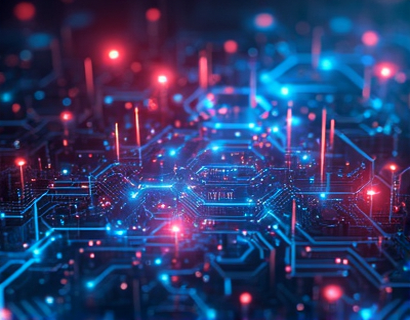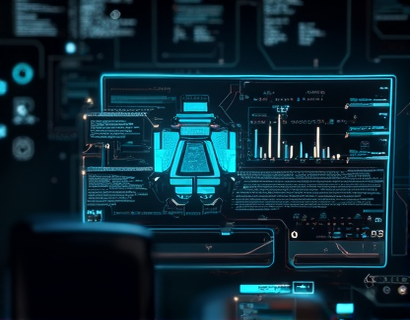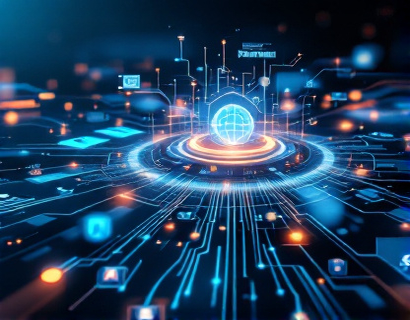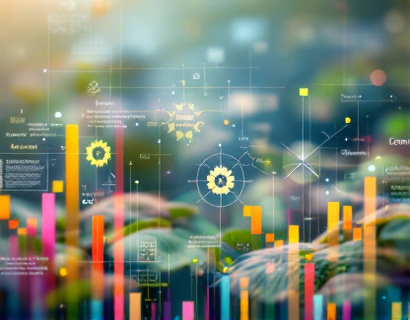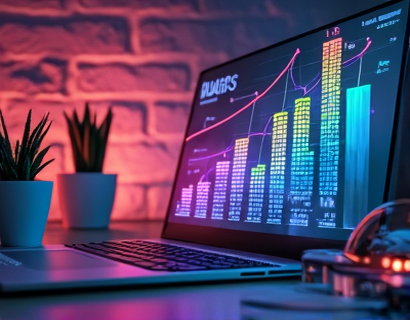Unleashing Next-Gen Productivity: The Synergy of AI and Crypto
The intersection of artificial intelligence and cryptocurrency is giving birth to a new era of digital solutions that promise to revolutionize productivity and workflow management. This fusion leverages the strengths of both technologies to create innovative applications that streamline daily tasks, enhance efficiency, and open up new possibilities for tech innovators and early adopters. As we delve into this exciting frontier, it's essential to understand how these technologies complement each other and what this means for the future of digital productivity.
Understanding AI and Cryptocurrency
Artificial intelligence, or AI, refers to the simulation of human intelligence processes by machines, particularly computer systems. These processes include learning, reasoning, problem-solving, perception, and language understanding. AI technologies such as machine learning, natural language processing, and computer vision are rapidly advancing, enabling more sophisticated and autonomous systems.
Cryptocurrency, on the other hand, is a digital or virtual currency that uses cryptography for security. It operates on a decentralized network, typically a blockchain, which ensures transparency, security, and immutability. Cryptocurrencies like Bitcoin, Ethereum, and others have gained significant traction, not just as digital currencies but also as platforms for building decentralized applications (dApps) and smart contracts.
Synergy of AI and Crypto
The combination of AI and cryptocurrency creates a powerful synergy that can drive next-generation productivity solutions. AI can enhance the functionality and usability of blockchain-based applications, while blockchain can provide a secure and transparent environment for AI models and data. This integration leads to more reliable, efficient, and user-friendly digital tools.
Enhanced Security and Trust
One of the primary benefits of combining AI and cryptocurrency is the enhanced security and trust they offer. Blockchain's inherent properties ensure that data is tamper-proof and transparent, which is crucial for AI applications that handle sensitive information. AI can further strengthen security by detecting anomalies, preventing fraud, and ensuring compliance with regulatory standards. This dual-layer security is particularly important for businesses and individuals who rely on digital solutions for critical tasks.
Improved Efficiency and Automation
AI-driven automation can significantly boost productivity by handling repetitive and time-consuming tasks. In the context of cryptocurrency, smart contracts can automate complex financial transactions, reducing the need for intermediaries and lowering costs. AI can optimize these smart contracts, ensuring they execute efficiently and accurately. For instance, AI can analyze market data in real-time to execute trades at optimal times, a task that would be impractical for traditional systems.
Personalized User Experiences
AI's ability to process and analyze vast amounts of data allows for the creation of personalized user experiences. In the realm of cryptocurrency, AI can tailor recommendations based on user behavior, preferences, and market trends. This personalization extends to digital productivity tools, where AI can adapt interfaces, suggest workflows, and provide insights that enhance user productivity. For example, an AI-powered task manager can prioritize tasks based on urgency and importance, ensuring users focus on what matters most.
Innovative Digital Solutions
The fusion of AI and cryptocurrency is giving rise to a new generation of digital solutions that transform daily tasks and workflows. These solutions are designed to be seamless, intuitive, and highly efficient, catering to the needs of tech innovators and early adopters. Let's explore some of these cutting-edge applications.
Decentralized Productivity Platforms
Decentralized productivity platforms leverage blockchain to create a collaborative environment where users can share and manage tasks, files, and projects without central control. AI can enhance these platforms by providing intelligent task assignment, real-time collaboration tools, and predictive analytics to optimize project management. For instance, an AI-driven platform can analyze team performance and suggest optimal work schedules, resource allocations, and conflict resolutions.
AI-Powered Crypto Wallets
Crypto wallets are essential for managing digital assets, but they can be complex and overwhelming for new users. AI-powered wallets simplify this process by offering intuitive interfaces, automated security measures, and personalized recommendations. AI can analyze transaction patterns to detect potential scams, suggest optimal storage solutions, and even automate routine tasks like backups and updates. This not only enhances user experience but also increases the adoption of cryptocurrency among the general population.
Smart Contract Optimization
Smart contracts are self-executing contracts with the terms of the agreement directly written into code. However, crafting efficient and secure smart contracts requires expertise in both legal and technical domains. AI can streamline this process by analyzing existing contracts, identifying potential vulnerabilities, and suggesting optimizations. AI-driven tools can also generate smart contracts based on predefined templates, making it easier for non-technical users to create and deploy smart contracts for various applications, from supply chain management to real estate transactions.
Market Prediction and Trading Bots
AI and cryptocurrency intersect in the realm of market prediction and trading bots. AI algorithms can analyze vast amounts of market data, including historical prices, news sentiment, and social media trends, to predict future price movements. These predictions can be used to automate trading decisions through bots that operate on blockchain networks. This combination ensures faster execution, reduced latency, and enhanced security, giving users a competitive edge in the crypto markets.
Content Creation and Management
Content creation and management are critical for businesses and individuals looking to establish a digital presence. AI can generate high-quality content, optimize it for search engines, and manage social media interactions. When integrated with cryptocurrency, these tools can also handle digital asset management, royalty distributions, and copyright verification. For example, AI can create and schedule social media posts that promote crypto assets, while ensuring that royalties are automatically distributed to content creators based on predefined smart contracts.
Challenges and Considerations
While the potential of AI and cryptocurrency in enhancing productivity is immense, there are several challenges and considerations that need to be addressed. Understanding these is crucial for leveraging these technologies effectively.
Regulatory Compliance
The crypto space is still navigating a complex regulatory landscape. Ensuring that AI-powered crypto solutions comply with local and international regulations is essential to avoid legal issues. This includes adhering to anti-money laundering (AML) and know-your-customer (KYC) requirements, as well as understanding the tax implications of crypto transactions.
Technical Complexity
Integrating AI with blockchain technology involves significant technical complexity. Developers need to have a deep understanding of both domains to create robust and secure solutions. This requires a skilled workforce and substantial investment in research and development. Additionally, users must be educated to effectively utilize these advanced tools.
Data Privacy
Data privacy is a major concern in both AI and cryptocurrency. AI systems often require access to large datasets, which can include sensitive information. Blockchain's transparency can sometimes conflict with privacy needs. Implementing privacy-preserving techniques such as zero-knowledge proofs and homomorphic encryption is essential to protect user data while maintaining the benefits of AI and blockchain.
Future Outlook
The future of AI and cryptocurrency in productivity solutions is bright, with numerous opportunities for innovation and growth. As technology continues to advance, we can expect more seamless integration, improved user experiences, and the emergence of new applications that we can hardly imagine today. The key will be to address the challenges head-on, foster collaboration between tech experts, and create an ecosystem that supports sustainable and ethical development.
For tech innovators and early adopters, the fusion of AI and cryptocurrency offers a unique chance to be at the forefront of a technological revolution. By embracing these technologies, they can not only enhance their productivity but also contribute to shaping the future of digital solutions. The journey ahead is exciting, and the possibilities are endless.




